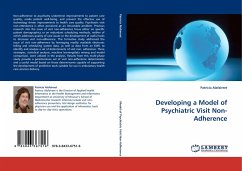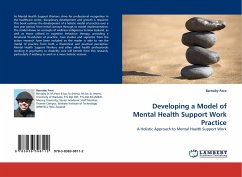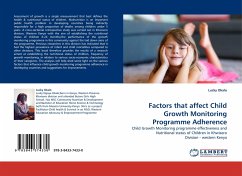Non-adherence to psychiatry undermine improvements to patient care quality, erode patient well-being, and prevent the effective use of technology driven improvements to health care quality. Psychiatric visit non-attendance is often perceived as an intractable problem. Previous research into the issue of visit non-adherence focus either on specific patient demographics or on redundant scheduling methods, neither of which addresses quality of care issues or the development of useful tools to decrease visit non-adherence. This formative study addressed the issue of visit non-adherence by leveraging readily available electronic billing and scheduling system data, as well as data from an EMR, to identify and analyze a set of determinants of visit non- adherence. Three strategies, statistical analysis, machine learning/data mining and model comparison, were utilized in the analysis. Results from this multi-phase study provide a parsimonious set of visit non-adherence determinants and auseful model based on those determinants capable of supporting the development of predictive tools suitable for use in ambulatory health care services delivery.
Bitte wählen Sie Ihr Anliegen aus.
Rechnungen
Retourenschein anfordern
Bestellstatus
Storno








